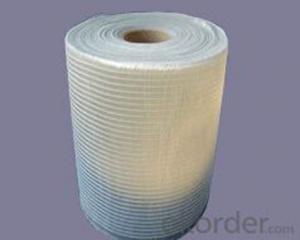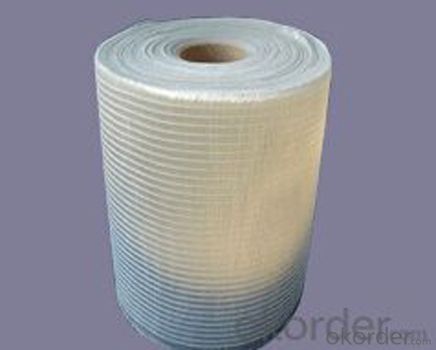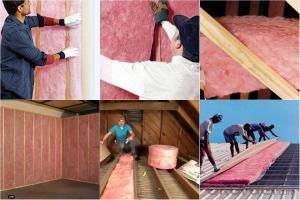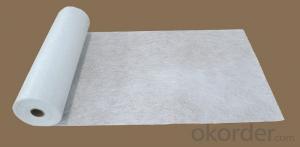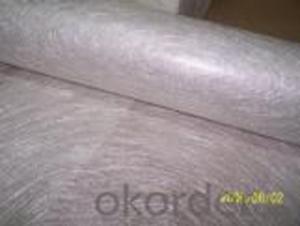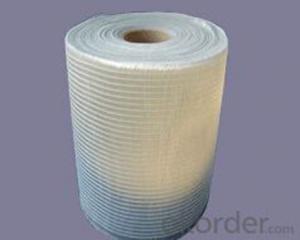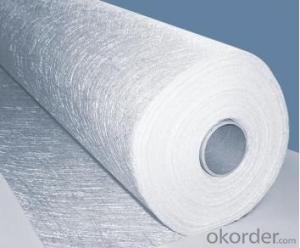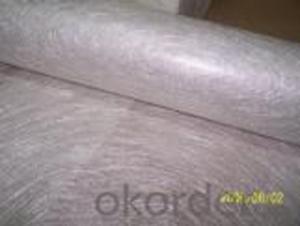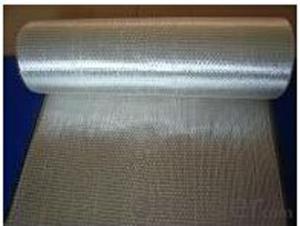Fiberglass Mat Tissue - e-glass Fiber Stitch Chopped Strand Mat 300gsm Width 50-2400mm
- Loading Port:
- Shanghai
- Payment Terms:
- TT or LC
- Min Order Qty:
- 2000 kg
- Supply Capability:
- 10000000 kg/month
OKorder Service Pledge
OKorder Financial Service
You Might Also Like
E-glass Fiber Stitch Chopped Strand Mat with Density 300gsm, Width 50-2400mm
Description
Fiberglass stitch chopped strand mat is the mat made of fiberglass roving which is at first be cut into certain length and evenly unfolded in all directions and then stitched with polyester yarn.
Main features:
◎ Uniform thickness, good wet tensile strength retention.
◎ Good mould-ability, good drapability and easy operation.
◎ Good wet out speed and high efficiency in production.
Images:
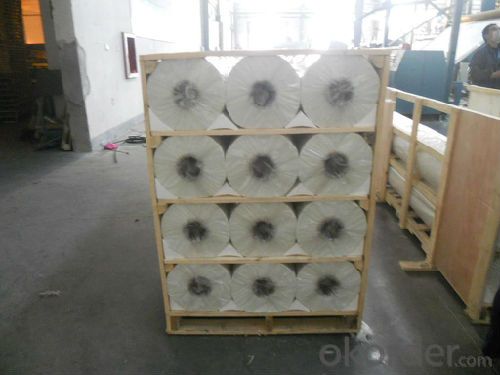
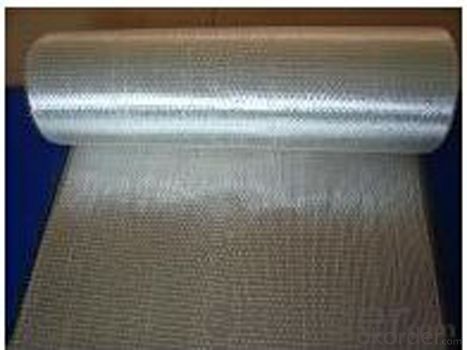
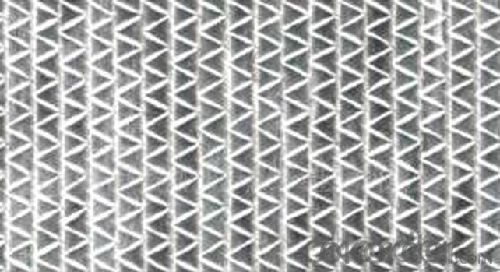
Specifications&Details
specifications | Fibre type | Areal weight | Width |
(g/㎡) | (mm) | ||
EMK 300 | E-Glass | 300 | 50-2400 |
EMK380 | E-Glass | 380 | 50-2400 |
EMK450 | E-Glass | 450 | 50-2400 |
CMK 300 | C-Glass | 300 | 50-2400 |
CMK380 | C-Glass | 380 | 50-2400 |
CMK450 | C-Glass | 450 | 50-2400 |
Packaging: Wrapped in PVC and placed within a cardboard carton. | |||
FAQ
Payment terms?
We can accept L/C, T/T etc.
Do you offer OEM service?
Yes, we can print customers’ logo on the packaging;
And the size and specification can be produced and design according to your demand.
- Q: What are the different fabric finishes available for fiberglass mat tissue?
- Some of the different fabric finishes available for fiberglass mat tissue include plain weave, twill weave, satin weave, and leno weave. These finishes affect the appearance and texture of the tissue, as well as its strength and durability.
- Q: Can fiberglass mat tissue be used for pipe insulation?
- Typically, pipe insulation does not involve the use of fiberglass mat tissue. Fiberglass mat tissue is a thin substance commonly utilized for reinforcement in different industries, rather than for thermal insulation or preventing heat loss in pipes. When it comes to insulating pipes, materials like foam, mineral wool, or fiberglass pipe insulation are more commonly employed. These materials are specifically designed to offer thermal insulation and safeguard pipes against heat loss, condensation, and freezing.
- Q: How is fiberglass mat tissue used in the production of printed circuit boards?
- Fiberglass mat tissue is commonly used in the production of printed circuit boards (PCBs) as a reinforcement material. PCBs are typically made of layers of copper, insulating materials, and fiberglass. The fiberglass mat tissue serves as a structural support and helps provide mechanical strength to the PCB. During the manufacturing process, the fiberglass mat tissue is impregnated with a resin, usually epoxy, to form a laminate material. This laminate is then layered with copper foils, which act as conductive pathways for the electrical signals on the PCB. The fiberglass mat tissue plays a crucial role in the PCB's performance and reliability. It provides a solid foundation for the copper layers, preventing them from delaminating or warping due to mechanical stress or temperature changes. It also helps to maintain the dimensional stability of the PCB, ensuring that it remains flat and rigid. Furthermore, the fiberglass mat tissue enhances the PCB's resistance to heat and moisture. The epoxy resin used in the laminate offers excellent insulation properties, protecting the copper conductors from short circuits or electrical leakage. Additionally, the fiberglass mat tissue acts as a barrier against moisture absorption, preventing the PCB from becoming damaged or malfunctioning. In summary, fiberglass mat tissue is an essential component in the production of printed circuit boards. It provides structural support, enhances mechanical strength, ensures dimensional stability, and improves resistance to heat and moisture. Ultimately, the use of fiberglass mat tissue contributes to the overall reliability and performance of PCBs in various electronic devices.
- Q: Is fiberglass mat tissue biodegradable?
- Fiberglass mat tissue does not possess biodegradable properties. It is an artificial substance composed of delicate glass fibers intricately interwoven to form a resilient and long-lasting material. These fibers do not undergo natural decomposition, rendering fiberglass mat tissue to be non-biodegradable.
- Q: Can fiberglass mat tissue be used for making insulation jackets?
- Yes, fiberglass mat tissue can be used for making insulation jackets. Fiberglass mat tissue is a lightweight material that offers excellent thermal insulation properties. It can effectively trap heat and prevent it from escaping, making it suitable for creating insulation jackets that provide warmth and insulation.
- Q: Is fiberglass mat tissue compatible with vacuum infusion processes?
- Yes, fiberglass mat tissue is compatible with vacuum infusion processes. Fiberglass mat tissue is often used as a reinforcement material in composite manufacturing processes, including vacuum infusion. The vacuum infusion process involves the use of a vacuum to remove air and ensure complete resin impregnation of the fiberglass mat tissue. The porous nature of the fiberglass mat tissue allows the resin to flow through and saturate the fibers, resulting in a strong and durable composite part. This makes fiberglass mat tissue an ideal choice for vacuum infusion processes.
- Q: What are the different types of resins compatible with fiberglass mat tissue?
- There are several types of resins that are compatible with fiberglass mat tissue, including polyester resin, epoxy resin, and vinyl ester resin. These resins provide different properties and characteristics to the fiberglass mat, such as strength, durability, and resistance to chemicals or UV degradation. The choice of resin depends on the specific application and desired performance of the fiberglass product.
- Q: Is fiberglass mat tissue suitable for agricultural applications?
- Certainly! Fiberglass mat tissue proves to be a suitable option for agricultural uses. Its versatility makes it an ideal material in the agricultural sector, providing numerous advantages. The resistance of fiberglass mat tissue to moisture, chemicals, and UV radiation makes it perfect for applications like greenhouse roofing, animal enclosures, and agricultural equipment. It possesses exceptional insulation properties, aiding in the regulation of temperature and safeguarding crops or livestock against harsh weather conditions. Moreover, fiberglass mat tissue is lightweight, easy to install, and long-lasting, making it an economical choice for agricultural projects. In conclusion, fiberglass mat tissue is a fitting material for a wide range of agricultural applications, ensuring durability, flexibility, and safeguarding for the farming industry.
- Q: Is fiberglass mat tissue suitable for insulation in residential buildings?
- Yes, fiberglass mat tissue is suitable for insulation in residential buildings. Fiberglass mat tissue is a type of insulation material that is made from glass fibers and is commonly used in residential buildings due to its excellent thermal properties. It has a high R-value, which means it provides effective insulation by reducing heat transfer, keeping the interior of the building warm during winter and cool during summer. Fiberglass mat tissue is also known for its durability and long lifespan, making it a reliable choice for residential insulation. It is resistant to moisture, mold, and pests, ensuring a healthy and comfortable living environment. Additionally, fiberglass mat tissue is lightweight and easy to install, making the insulation process efficient and cost-effective. Furthermore, fiberglass mat tissue is fire-resistant, which is an essential feature for residential buildings. It acts as a barrier, preventing the spread of fire and protecting the occupants and property from potential hazards. Overall, fiberglass mat tissue is a suitable and popular choice for insulation in residential buildings due to its thermal efficiency, durability, fire-resistant properties, and ease of installation.
- Q: What is the flexural strength of fiberglass mat tissue?
- The flexural strength of fiberglass mat tissue refers to its ability to resist bending or flexing without breaking. It is typically high due to the reinforcing properties of the fiberglass material, making it suitable for applications requiring structural integrity and resistance to deformation.
Send your message to us
Fiberglass Mat Tissue - e-glass Fiber Stitch Chopped Strand Mat 300gsm Width 50-2400mm
- Loading Port:
- Shanghai
- Payment Terms:
- TT or LC
- Min Order Qty:
- 2000 kg
- Supply Capability:
- 10000000 kg/month
OKorder Service Pledge
OKorder Financial Service
Similar products
Hot products
Hot Searches
Related keywords
